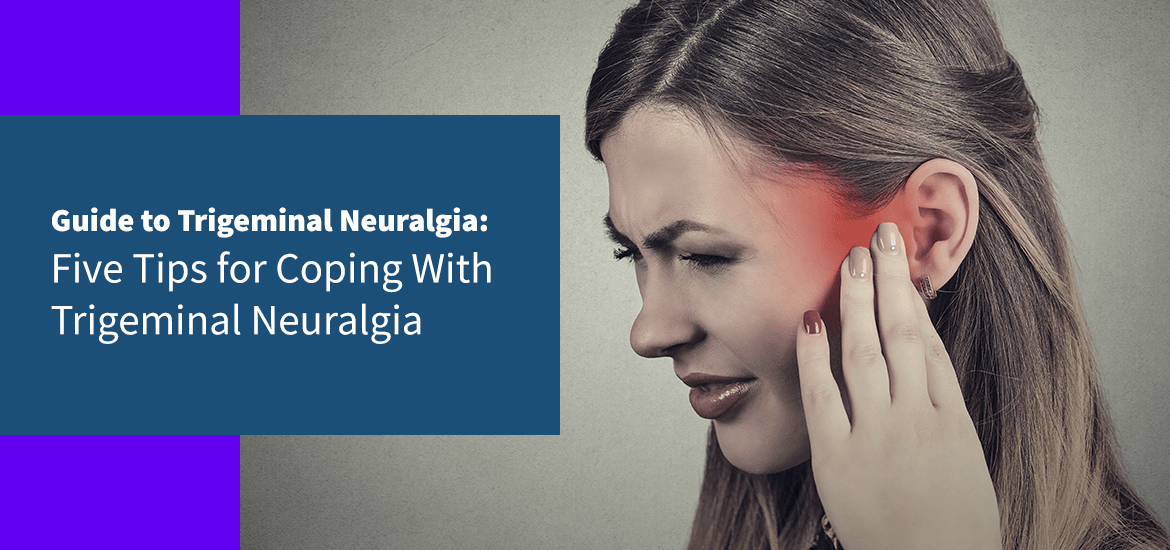If you or a loved one has been diagnosed with trigeminal neuralgia (TN), you are likely all too familiar with the extreme pain and often life-altering effects of the condition. The American Association of Neurological Surgeons estimates that every year, about 150,000 people are diagnosed with TN. Despite this number, the condition is still not well known in mainstream culture. To those unfamiliar with the disease, the debilitating chronic pain of TN may come as a shock. To people who have TN, the pain is all too real. Understanding more about TN’s causes, symptoms and treatment options can help all affected by the condition better manage their health concerns.
What Is Trigeminal Neuralgia?
Trigeminal neuralgia is a neurological disorder and chronic pain condition. Sometimes called “tic douloureux,” which is French for “painful tic,” TN is one of the most painful health conditions a person can have. Studies indicate that women are more likely to experience TN than men, as are people over 50. Understandably, a TN diagnosis may cause anxiety and feel overwhelming. However, being diagnosed with TN does not mean you must resign yourself to a life of pain. Many treatment plans and coping methods exist to minimize the condition’s effects and protect your quality of life as much as possible.
Cause of Trigeminal Neuralgia
Scientists still don’t completely understand the exact cause of trigeminal neuralgia, but experts believe TN occurs due to pressure or other irritation on the person’s trigeminal nerve. The trigeminal nerve is a set of cranial nerves extending from the brain and into the face. Three different nerve branches comprise the trigeminal nerve:
- The ophthalmic nerve, which controls sensations in the eyes, eyebrows and forehead
- The maxillary nerve, which controls sensation in the lower eyelid, cheeks and nose
- The mandibular nerve, which controls sensation in the jaw, lips and lower part of the face
The tripartite quality of the trigeminal nerve means irritation or pressure on it can result in widespread acute pain throughout the person’s head and face.
Symptoms of Trigeminal Neuralgia
TN is most often characterized by extreme, often debilitating, chronic pain. The most common trigeminal neuralgia symptoms include the following:
- Severe shooting or stabbing-like pains throughout the face
- Constant aching or burning feelings
- Pain in one side of the face but not the other
- Pain throughout the jaw, teeth and gums
Many daily activities can trigger TN pain attacks, such as eating and drinking, shaving the face, applying makeup to the face, brushing the teeth, touching the face and even smiling. TN pain attacks can also be completely spontaneous with no obvious trigger. Understandably, many people with TN also experience anxiety due to the unpredictable nature of these pain attacks.
 Treating Trigeminal Neuralgia
Treating Trigeminal Neuralgia
There is no cure for trigeminal neuralgia, but effective TN treatment methods exist for pain relief and minimizing the symptoms. Many people can manage trigeminal neuralgia pain for years with pain medications, such as carbamazepine or gabapentin. In some cases, a neurologist may recommend surgical intervention, like a rhizotomy or microvascular decompression (MVD). For TN patients who are in otherwise good health, MVD surgery can be a great option. It is often considered the longest-lasting and most effective way to treat trigeminal neuralgia. Studies indicate that about 80% of MVDs have a successful outcome for people with TN. A neurologist can recommend the best treatment options for each person on a case-by-case basis. There is no one-size-fits-all solution to this condition.
Five Tips for Coping With Trigeminal Neuralgia Pain
If you or a loved one has TN, you know how this chronic pain condition can sometimes be difficult for others to understand. As such, you may find yourself feeling overwhelmed and isolated at times. Caring for your mental health, connecting with others and practicing self-care can all go a long way in preserving your quality of life, despite a TN diagnosis. Along with medical treatments and interventions, the following ways to cope with trigeminal neuralgia may make your life a bit easier:
- Look after your mental health: Living with chronic pain can often feel isolating and lonely. If you have TN, you may experience anxiety about the possibility of a sudden pain attack. You should invest in your mental health, along with your medical treatment plan. Your neurologist may be able to refer you to a mental health counselor or TN support group. Other mental health practices, such as journaling or meditating, may help you feel grounded and in control of your body. If someone you love has TN, encourage them to seek mental health support as needed.
- Surround yourself with supportive friends and loved ones: Many people misunderstand chronic pain conditions. Some people in your life may be dismissive of your feelings or reluctant to support your diagnosis. Try to avoid that kind of negative energy if you can. Feeling connected to others, and supported by friends and loved ones, can contribute significantly to your overall treatment outcomes. If your loved one has TN, offer to help them in concrete ways, like driving them to doctor’s appointments and assisting with childcare and household tasks.
- Explore alternative treatments: Some people experiencing TN have reported success with alternative treatment options, such as acupuncture. Discuss alternative therapies with your neurologist to see if they might be a good option for you.
- Avoid triggers: While TN pain attacks are often spontaneous, some people with TN find that specific triggers bring on their pain attacks. While TN triggers vary for each person, some common ones include windy weather, spicy foods, cold beverages and chewing. If you can identify common triggers, making a conscious effort to avoid them may help alleviate some TN pain.
- Practice a healthy lifestyle and general self-care: Most people with TN find good, reliable treatment options that allow them to live long, healthy lives. It’s crucial that you look after your overall health through a balanced diet, exercise, a consistent sleep schedule and mental healthcare. Managing your TN will be much easier when the rest of your body is taken care of as well.
Contact Upper Cervical Chiropractic of New York for Trigeminal Neuralgia Support
With years of experience and specialized expertise in the treatment of spinal correction and nervous system care, Upper Cervical Chiropractic of New York is uniquely suited to treat TN. Contact us today to learn more about our work and how we can serve you.
REVIEWED BY DR. GEORGE GERTNER

Dr. George Gertner is a family man, healer, philanthropist, author of “The Gift of Hope”, public speaker, and founder of one of the world’s busiest Upper Cervical Chiropractic clinics.
After receiving his bachelors degree in biology from Hofstra University in Hempstead, NY Dr. Gertner moved to Atlanta, GA to attend Life University. Before graduation, Dr. Gertner had a severe injury to his lower back. Traditional chiropractic procedures were not providing relief until he met a chiropractor that specialized in NUCCA (National Upper Cervical Chiropractic Association.)
Then he spent the next two years mentoring from one of the best Upper Cervical doctors; learning in the same office that helped change his life. After two years, Dr. Gertner returned home to New York to open his own office. He currently is one of less than 300 NUCCA chiropractors worldwide.
Dr. Gertner has been featured numerous times in Chiropractic Monthly Magazine for his expertise in treating Trigeminal Neuralgia and Myofascial Pain. Dr. Gertner has lectured locally and nationwide discussing various symptoms using the Upper Cervical technique.



 Treating Trigeminal Neuralgia
Treating Trigeminal Neuralgia